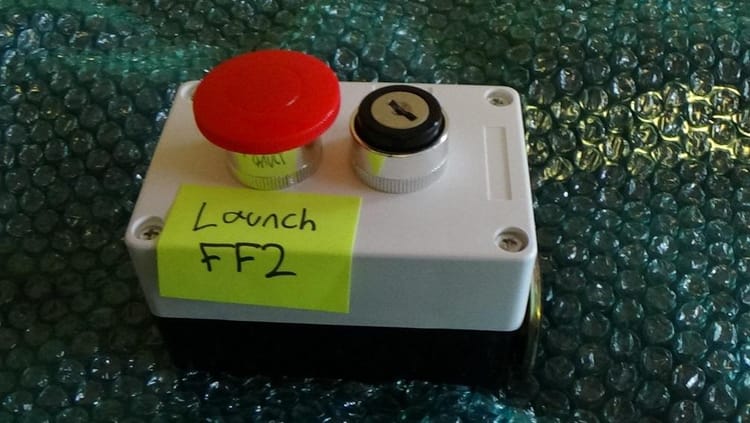Pop, politics, and everything in between: the virtual families of netlabels

It’s approximately 7 p.m. on a Monday night in California, and across from me sits the bleach-haired Zeon Gomez of Ulzzang Pistol, an artist of Los Angeles-based netlabel Zoom Lens. Yet for Gomez, it’s 11 a.m. on a Tuesday. He resides across the world from my foggy little city in the United States, approximately 16 hours ahead in the Philippines (Manila, specifically). Dividing us is an extremely common window: a computer screen. The household item not only used for the sake of hosting our lengthy conversation over Google Hangouts, but a tool for maintaining friendships across countries and oceans, discovering inspirations in unexpected places, and releasing art into the boundless void of the web—in Gomez’s case, music. Without the Internet, we wouldn’t be having this conversation, and more than that, Gomez’s music wouldn’t even exist.
Netlabels, by simple definition, are online labels that distribute their music largely online, either through websites like Bandcamp, Soundcloud, or via their own (often free) downloadable means. Typically helmed by one or two people, netlabels have a set roster of artists on their sites, in addition to co-signing releases through the label (in some cases, it’s only cosigned releases). To be clear, using the Internet to promote and distribute music is nothing new. In the early aughts, the popularity of French house label Ed Banger Records grew steadily—largely thanks to artists’ profiles on social network sites like Myspace. This resulted in electro-rapper Uffie’s quick rise to fame, as well as the success of labelmates Justice and Mr. Oizo. Where Ed Banger used social media to market their music, netlabels emerged in a fashion that was more borne of the Internet itself. With tunes not as polished as something like Justice, netlabels cultivated a new form of pop and dance music for the DIY, laptop-enabled crowd. In an era where being an independent artist changed from peddling mixtapes in dingy bars to hustling free albums on Bandcamp, netlabels evolved at lightning speed.
Conservatism and the right to dance
Japan is a country dominated by its own sugar-coated, highly manufactured brand of idol pop music (colloquially referred to as J-Pop). Japanese netlabels arose in the mid-aughts as a new youth-based counterculture in rebellion against the highly conservative Japanese music industry, which essentially exists in a ‘nothing is a free or unmanaged’ vacuum of corporate culture. Netlabels such as Maltine Records emerged with the idea of pushing past this stuffy mantra. By distributing their eclectic circles of pop, dance, and hip-hop for free, netlabels forged a means of expression and rebellion against something major labels would frankly never allow their artists to do. For largely the first time, underground musicians were given the voices and agency they so desperately desired.
Netlabels cultivated a new form of pop and dance music for the DIY, laptop-enabled crowd
The first Japanese netlabel was 2003’s Minus N, which wasn’t nearly as powerful or successful as the leagues of netlabels that came in its wake. Despite its counterculture roots, netlabels aren’t an attack on J-Pop. In a lot of instances, netlabels embrace the genre’s bubblegum-tinged sound, and some netlabel artists even lend a helping hand to up-and-coming J-Pop artists. Maltine Records, established in 2005, remains the most prominent in the Japanese netlabel scene alongside Bunkai-kei Records. Its scope of releases expands beyond Japan to artists from London to Melbourne, just as Minus N’s did.
Across the board, netlabels are mainly seen as purveyors of electronic music, but the reality is more complex. Smaller netlabel Ano(t)raks is a rarity in itself. Instead of pushing its weight behind electronic music, indie pop-rock is at the forefront. For Maltine Records, the label’s overall subgenre is not clearly defined—leaving freedom for anything, really. For instance, city pop-inspired musician bo en’s affinity for Maltine’s artists and various videogame soundtracks gave him the agency to feel that “‘real music’ didn’t have to be boring, you can be a serious and studious artist working in these playful formats.” Contemporary dance netlabel Trekkie Trax’s strong camaraderie of underground DJs actively fought against Japan’s late-night clubbing laws. Under the law, you could not dance in a nightclub if it did not bare a “dancing license,” a point of contention for the young proctors of dance music until the law was eradicated in 2015.
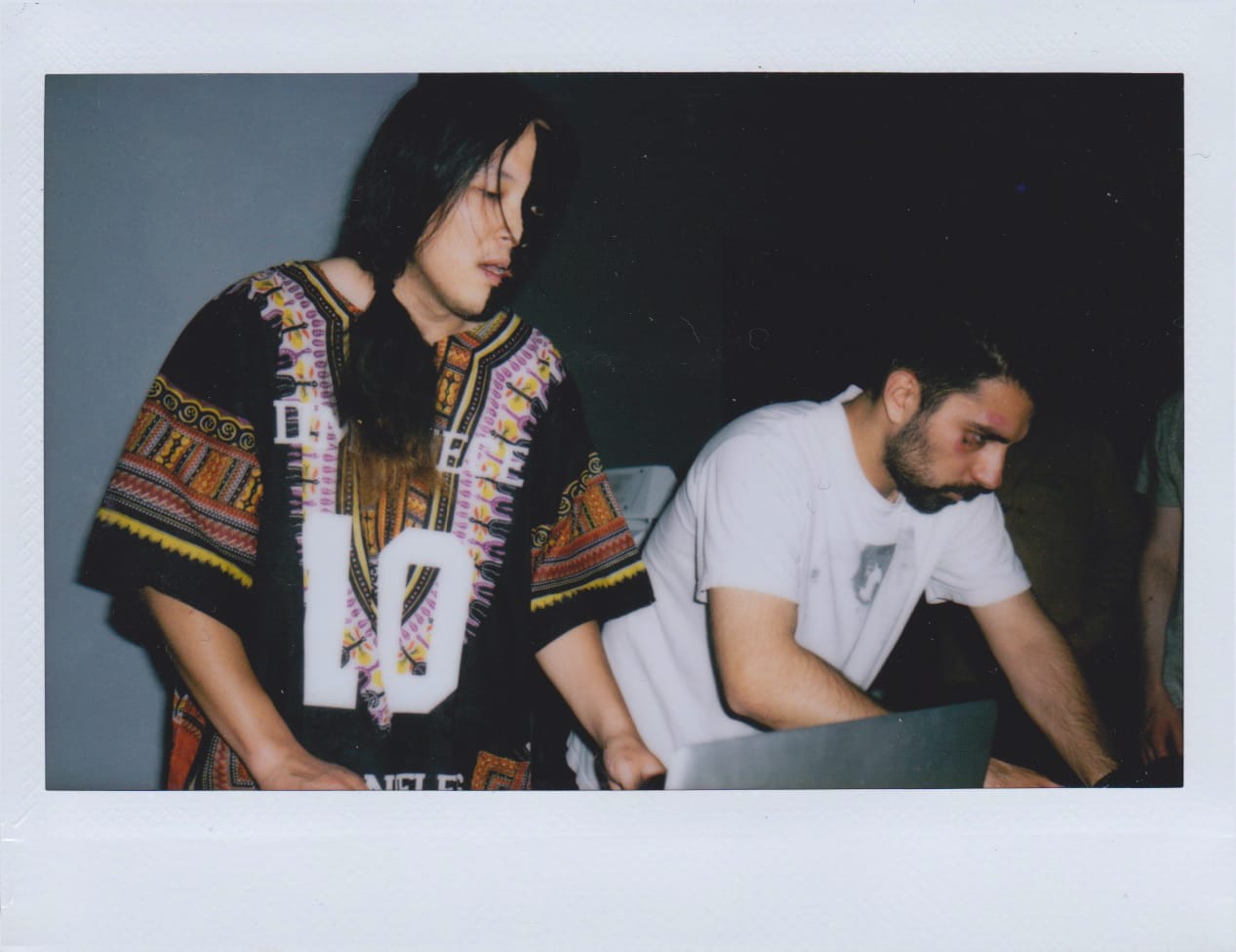
Japanese netlabels, in short, give artists the freedom to create whatever they damn well please. This is especially welcome in a music scene where cookie-cutter idol groups are common, and diversity among their style is rare (except for the joyous “indie” idol groups Negicco and Especia, or the frenetic subgenre of denpa idol groups). Where Japanese netlabels paved the way for web innovation, some Western netlabels surface and readjust the scene in new, peculiar ways.
A “Friends First Mentality”
The Western netlabel scene is technically older than Japan’s, but is far less defined in terms of an actual, tangible community. In the States, there hardly seems to be a place for grandiose roster-wide celebrations, or subterranean bass-heavy parties, as there are in Japan. What’s different in two notable Western-based netlabels, however, are the pockets of communities that thrive within them, and their varied inspirations for running a netlabel within a highly congested net-music climate.
According to co-founders Devin Miski and Noah Hafford of California-based netlabel/collective Galaxy Swim Team (GST), a “friends first mentality” is essential. Before GST’s inception, the two admired netlabels from afar but never felt welcomed themselves within the community. So Miski and Hafford came to the conclusion of simply starting their own web-based home. The result is the unwavering support that permeates throughout GST’s roster of pals. Perusing the small roster of artists, GST is full of the glee of pop-enthused youth. The music itself is rough around the edges, but heartfelt and earnest—part of its charm. “For me especially, all my other music is so brooding and negative and noisy,” said Miski. “So I specifically like to make the music I make for GST as something that balances it out. I feel like GST for a lot of us is the positive balance in our lives.”
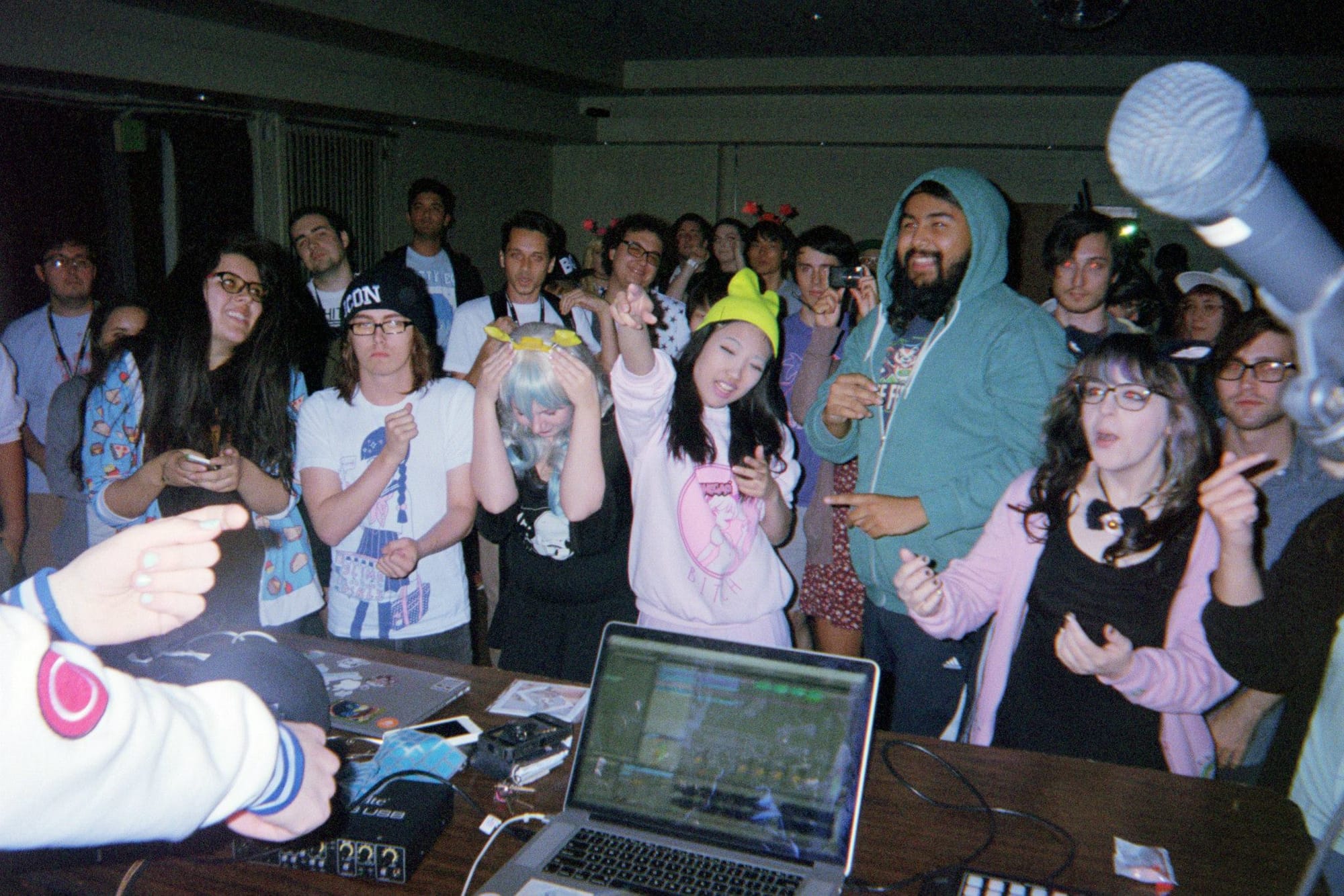
Miski grew up in San Jose, California’s DIY punk scene, a music community he never felt a deep connection with, despite bouncing from band to band since he was 15-years-old. Hafford’s only experience with any music scene has been to admire netlabels from his home in Pennsylvania. (He has since relocated to California). While the netlabels Hafford admired are older and more established, Miski and Hafford’s GST is fresh off the web, founded in January 2015.
In their first year as a netlabel, GST have released a slew of online releases, notably all for free to download (and plan to do “twice as many” in the coming year). They played a showcase at South by Southwest in Texas, as well as various other shows. The casual experiences shared among GST’s artists, ranging from prolific 4Loko drinking to heated arguments over Wendy’s, showcase that at the crux of it, music is just the bread for this particular netlabel/collective, with everything else stuffed in between. Through the music crafted, shared interests and private Twitters, the “feeling of just wanting to spend the entire night with your friends, playing a PS2 game and laughing at all the things that got lost in 2002,” GST illustrate that they didn’t just create a family through the netlabel, they already happened to be one. “I feel that that’s really important, when you’re brought together by more things than are just art,” said Hafford. “Beyond just music.”
“Blank Ocean”—A Worldwide Perspective
If freshmen netlabel Galaxy Swim Team are the jubilant side of Western netlabels, then Los Angeles-based Zoom Lens illuminate the grimmer, sad sect of the scene. For Zoom Lens founder Garrett Yim, a broader perspective beyond the Western hemisphere to the net music scene is most important. Zoom Lens, founded in 2009, has grown exponentially during its short lifespan, and continues to develop and widen its scope. With collaborative releases and even shared artists with Maltine, the two labels at the same time reflect one another, and yet shine very differently. Yim, a passionate curator for diversity in independently produced music, praised the local community that Maltine’s created in Japan. “I just saw a reflection of what I wanted to represent,” said Yim. “In that the Internet is simply a tool to be used to reach a community and to form a language to a world beyond our grasp.” The Internet as a means, not an end.
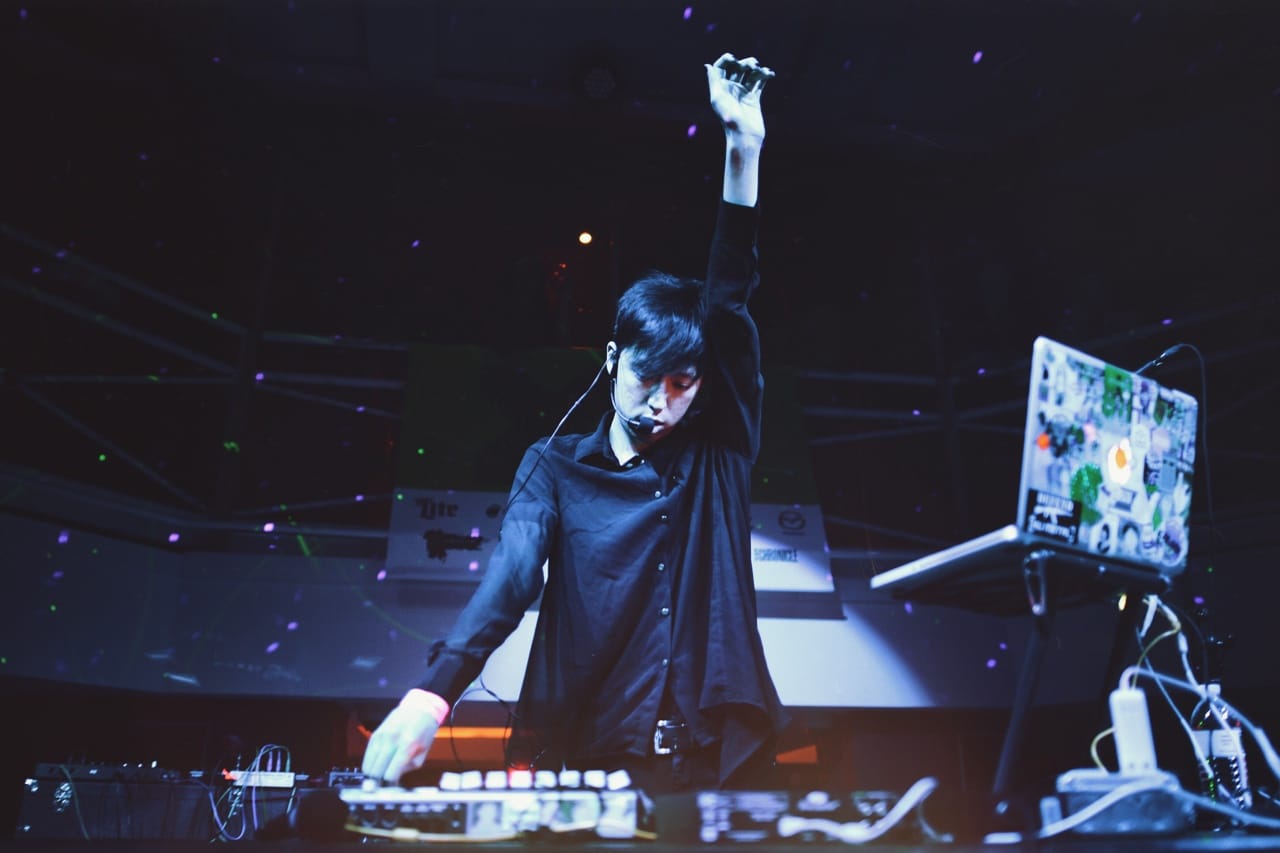
For Maltine, a specific aesthetic doesn’t really exist—it’s more a jumbled beacon for notable underground electronic, pop, and hip-hop in Japan and elsewhere. If there’s a throughline, it’s giving voice to Japan’s unknown (or, due to occasional major success, formerly unknown). For Zoom Lens, though, Yim’s goal is even grander: a community unified by commonality in feeling and ideology, music that’s not afraid to talk about the depressing side of life, while staying true to the nature of pop music. Yim abstains from even using the term “netlabel,” instead settling on the decisive “Zoom Lens community.”
In addition to being the founder, creative director, designer, and manager of Zoom Lens, Yim pours his efforts into his current music project, MEISHI SMILE, whose sound straddles the line between pop and noise. Yim started Zoom Lens during a time when he began to feel at odds with his place in the experimental and noise music scene. “The way I saw people consume noise music and the exploitation of niche, limited releases felt the same as the idolization and worship of pop artists,” said Yim of his experience in former project Yuko Imada. “People’s reactions and affinity with music and art are always the same, no matter the genre explored.”
The overall feel of Zoom Lens music, then, is bleak. The burned face of deceased eighties J-Pop idol Yukiko Okada is seen across products (in Yim’s effort to familiarize people with the pain Okada suffered in her life before her suicide, the burn mark as a ‘mask’). Every Zoom Lens release features dark, personal experiences funneled into “lighter” music. This contrast has wrought accusations of being “violent” and “negative,” though Yim always defends their collective creative decisions.
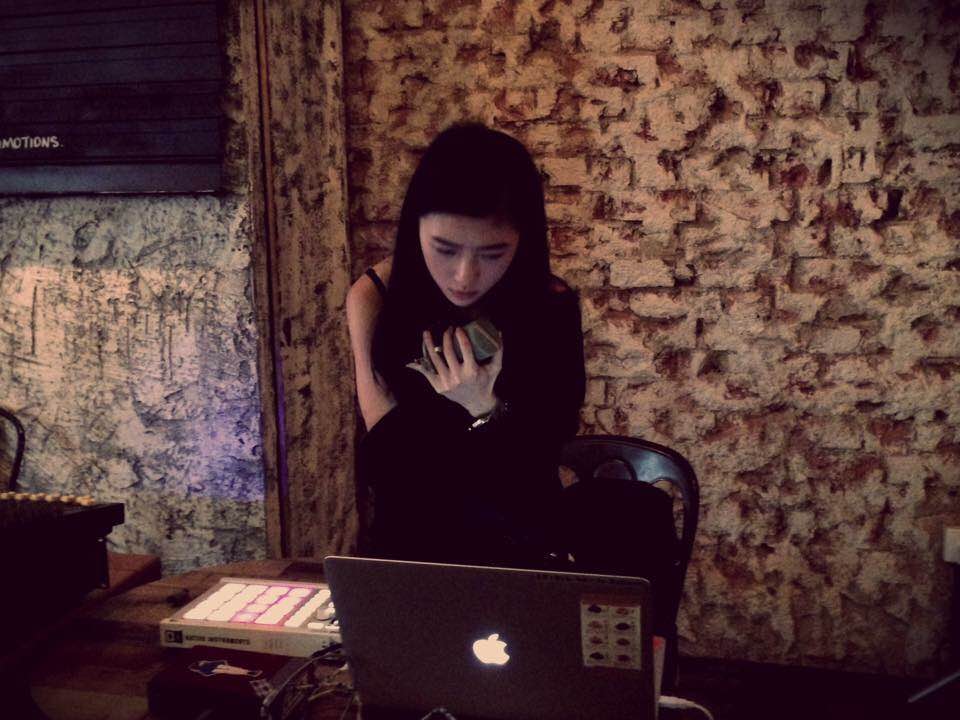
Zoom Lens differs from other blossoming Western netlabels in many ways, mostly in that its artists operate on a global scale, from Singapore’s Yeule to Manila’s Ulzzang Pistol to Japan’s LLLL. Its genres aren’t as cut and dry—much like MEISHI SMILE’s sound itself. This duality of sound and community is important to Zoom Lens’ approach. Yim recalled a conversation with the netlabel musician Gus Lobban, when someone told Lobban after a show, “What you did tonight was very brave, creating pop music.” For Yim, this raised the question, “When did pop music become brave?”
In Savannah, Georgia, Zoom Lens artist la pumpkin said that she was attracted to the label’s emotional sincerity and the lack of catering to a “trendy sound.” In Singapore, artist Yeule feels as if her quieter, ambient music differs strongly from that of the grander Singapore music scene (noting the local prominent hip-hop community). Personally inspired by her father’s jazz music and David Bowie, Yeule is content with the ambiguity of Zoom Lens. “I don’t think we’ll ever ‘fit’ into a scene,” said Yeule. “We are all merely just floating around and having a great time connecting with others through music.”
“When did pop music become brave?”
For Zeon Gomez of Ulzzang Pistol, his dreamy, pop-inspired house music relishes in its pan-Asian roots. Across his Ulzzang releases to date, Gomez has sung in English, Japanese, Korean, and most recently Tagalog; his native tongue. This is in addition to varied collaborations with artists from all around the globe, including Kero Kero Bonito’s Sarah Perry from London and the far lesser-known vocalists Yikii from China and Oh Hee Jung from Korea.
Gomez is hesitant to conform to a single genre, especially as he’s growing up and maturing, his music along with it. Where Gomez’s full-length Girlfriend was borne out of heartbreak, his future releases have formulated through a stronger sense of cohesion. His influences range from Korean golf MMO PanYa (“There wasn’t anything special about the game. I was there because I enjoyed talking, as much as I wasn’t so good at talking to people in real life”) to the diverse sounds of J-Pop, K-Pop, and C-Pop. A goal of Gomez’s music is simple: to make people feel good about themselves. He judges his success in this by the waves of beauty videos on YouTube using his music as a backing track. In Gomez’s experience, when someone’s getting ready to go out, they play a song to make themselves feel good. That’s what beauty vloggers do with his music. “Which is kind of shallow, but the instrumentals, that’s what they’re about,” said Gomez. “That’s why I’m still very keen on how music makes you feel.” His gravitation towards Zoom Lens evolved from an appreciation and friendship with its founder, Yim, and the two remain close today, despite living across the world from one another.
“Fuck Real Life”
The Soundcloud-universe of Western net music is filled to the brim with high-pitched twee and archaic Yoshi samples. This is fun, but creates a set of expectations that netlabels themselves fight to crash through. Zoom Lens mantra “Fuck Real Life,” attempts to counteract that. “It’s about being your own and going against this idea of what is ‘real’ and what is not,” said Yim. “It goes against the prefabricated notion that certain things need to fit in a box and cannot co-exist with each other, just like pop and noise music.”
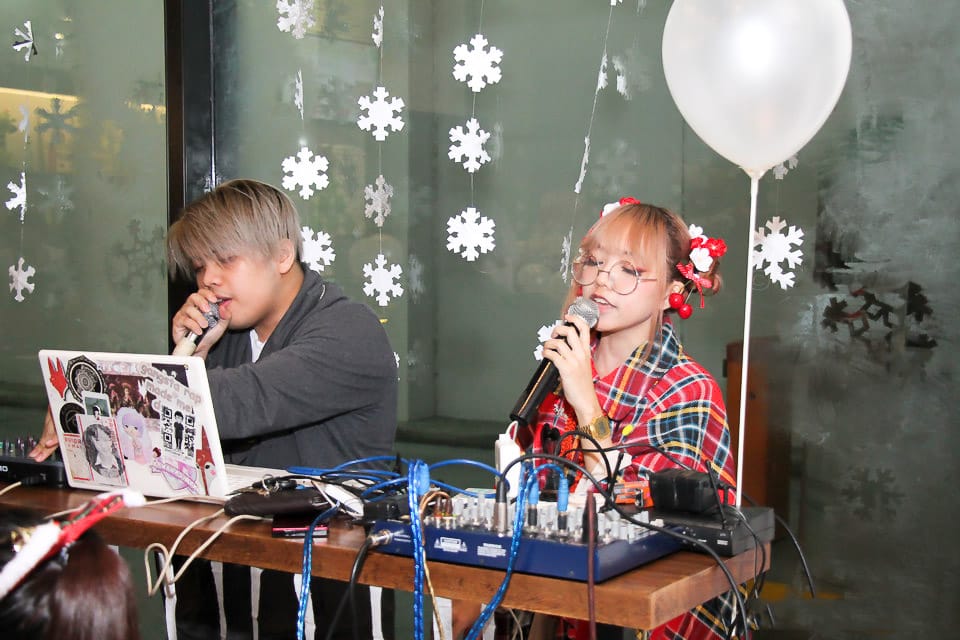
Subcultures are nothing new. The media theorist Dick Hebdige has written about how as generational consciousnesses arose after World War 2, subcultures like mods, punks, and reggae emerging to help deal with the claustrophobia of reality. All of which is to say that it’s important to contextualize such subcultures with the society they existed in. Netlabels would not exist without a generation of middle-to-lower-class kids growing up with the Internet, and the simplicity of its accessibility—a pure symptom of the digital-age. It may eventually fizzle out, as did other niche subcultures of the past—but that’s okay. Right now, netlabels are an anomaly in the subculture space, one that isn’t strictly defined by any sole aestheticized surface but a thread that varies wildly with each label. It’s instead the pockets of diverse communities that drive netlabels. Whether through the shared ideology and duality of sound spanning across seas in Zoom Lens’ global approach, the cemented long-term friendships in Galaxy Swim Team, the diverse power of Maltine’s releases, or the passionate activism-fueled fight for the right to dance in Tokyo clubs by Trekkie Trax—that’s the forefront. The aesthetic is an afterthought.
///
During our long-distance chat, Ulzzang Pistol’s Gomez expressed optimism for the future of the netlabel scene. A hope that netlabels venture out of Japan and the West, and pop up in new, untapped areas (such as Taiwan, China, Korea, and Southeast Asia). A hope that net music diversifies beyond the “kawaii” and popular contemporary dance sounds. “Putting all these other nationalities under the fray will probably inspire a new wave of sound,” said Gomez. “A new culture not appropriated, but inspired.”
Photos: Header image – MEISHI SMILE at Belong release party, photographed by Ei Toshinari, provided by Garrett Yim.
Zoom Lens artists liquid.sunshine & Thought Tempo at ZL x Glitch City, photographed by Daylen Chiang, provided by Garrett Yim.
Noah Hafford live at Billy DeFrank LGBT Community Center in San Jose, provided by Devin Miski and Noah Hafford.
MEISHI SMILE at SXSW Perfume Official Showcase, photographed by Adam Kissick, provided by Garrett Yim.
Yeule performing, provided by Nat Ćmiel (yeule).
Ulzzang Pistol performing, provided by Zeon Gomez.



